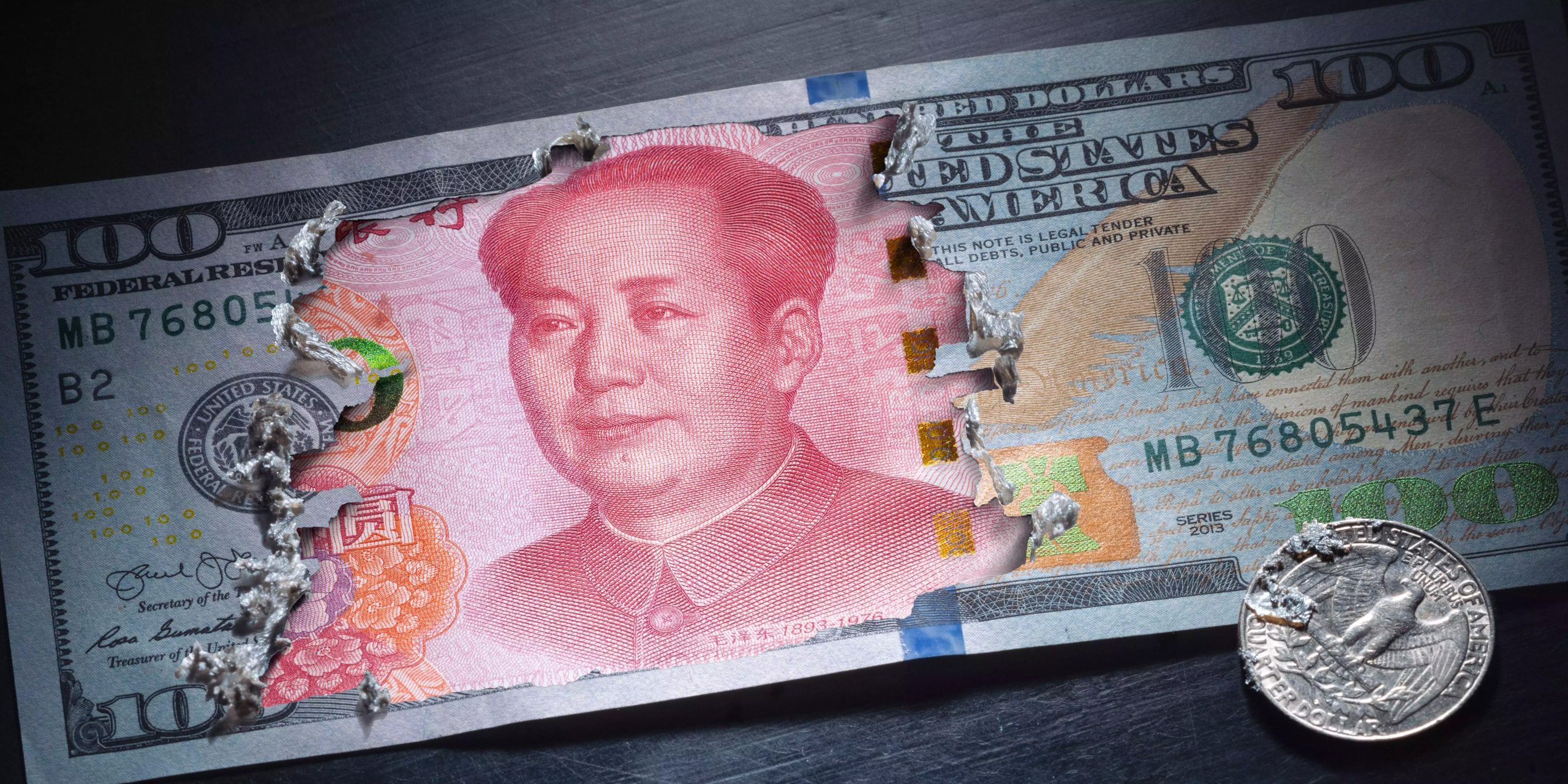China’s Belt and Road Initiative (BRI) forum witnessed the signing of several yuan-denominated loans on Wednesday, marking a significant shift away from the greenback. The loans, signed by China’s policy banks, demonstrate Beijing’s efforts to internationalize the yuan and de-dollarize global finance. Unlike previous BRI loans, which were mostly denominated in US dollars, the latest loans are in yuan.
Among the contracts signed at the BRI meeting, the China Development Bank inked agreements with Maybank in Malaysia, Egypt’s central bank, and BBVA Peru, as reported by Reuters. The Export-Import Bank of China also signed a loan agreement with Saudi National Bank, and Egypt issued panda bonds worth $479 million for the first time with the assistance of the Bank of China, aiming to repay its foreign loans.
Moreover, Beijing allocated an additional 80 billion yuan ($10.94 billion) to the Silk Road Fund, which supports BRI projects. China’s policy banks, state-backed lenders utilized by Beijing to advance long-term objectives like the BRI, play a pivotal role in this endeavor. The BRI, initiated by President Xi Jinping a decade ago, aims to establish stronger ties between China and global markets through extensive infrastructure development.
Dethroning the dollar is a significant policy objective for China. The latest data from the SWIFT international banking system reveals that the yuan accounted for a record 3.71% of international payments in September. However, this share pales in comparison to the dollar’s dominance, which stands at 46.6%. China has been actively pursuing its goal by signing bilateral currency swap agreements with 20 partner countries and establishing yuan-clearing arrangements in 17, as stated in a white paper released before the BRI forum.
In a separate development, Argentina recently secured access to $6.5 billion worth of yuan through a swap agreement. China has been encouraging the use of the yuan through the issuance of “panda bonds,” which are notes issued by foreign entities in Chinese markets.
China’s emphasis on yuan-denominated loans and its efforts to promote the use of the yuan are integral to its agenda of internationalizing its currency and diminishing the reliance on the US dollar. These developments have far-reaching implications for the global financial landscape and China’s position within it.

I have over 10 years of experience in the cryptocurrency industry and I have been on the list of the top authors on LinkedIn for the past 5 years.

